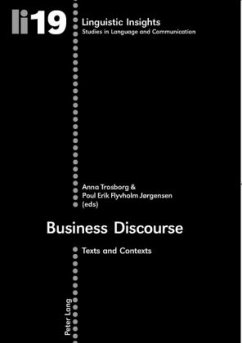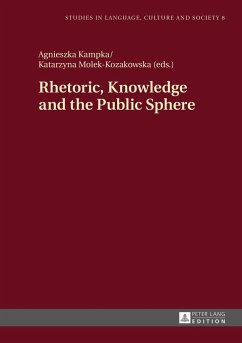
Global Interactions in English as a Lingua Franca
How written communication is changing under the influence of electronic media and new contexts of use
Versandkostenfrei!
Versandfertig in 6-10 Tagen
86,70 €
inkl. MwSt.

PAYBACK Punkte
0 °P sammeln!
This volume investigates the changes undergone by written communication in our globalized world as English as a Lingua Franca (ELF). The latter usually functions as a language for communication purposes, but also becomes a language for identification purposes. The study takes into account different web-genres: from the replication of existing genres in other media to cybergenres, whose key evolutionary force is the progressive exploitation of the new functionalities afforded by the new medium. The variety of the contexts of use has made it possible to consider different ELF-using communities o...
This volume investigates the changes undergone by written communication in our globalized world as English as a Lingua Franca (ELF). The latter usually functions as a language for communication purposes, but also becomes a language for identification purposes. The study takes into account different web-genres: from the replication of existing genres in other media to cybergenres, whose key evolutionary force is the progressive exploitation of the new functionalities afforded by the new medium. The variety of the contexts of use has made it possible to consider different ELF-using communities of practice, whose members adopt ELF and adapt it to express individual, national and professional identities in international interactions. The analysis focuses on lexicogrammatical innovations, which inevitably change in accordance with the different contexts of use, as well as on the communicative strategies underpinning these changes.














